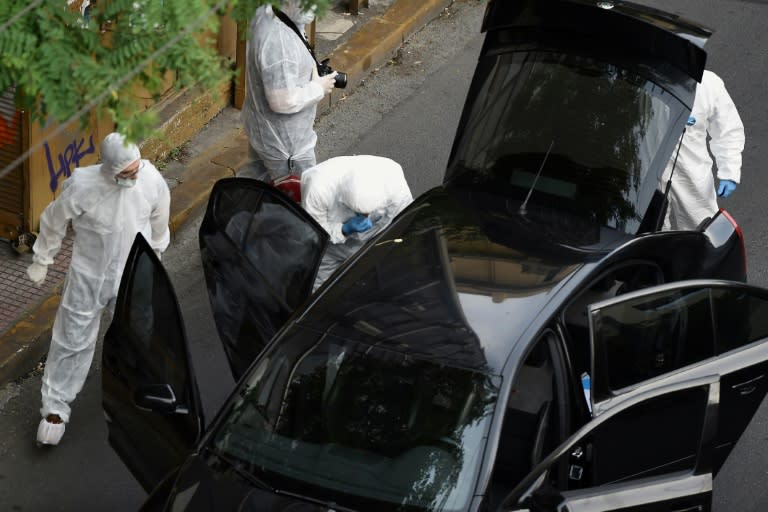Greek police probing security failures in attack on ex-PM
Greek police on Friday sought to determine how a letter bomb wounded former prime minister Lucas Papademos despite security checks that were allegedly beefed up after a wave of similar attacks in March. "We want to determine whether security procedures were followed," a police source told AFP, hours after Papademos and two guards were injured by the bomb that exploded as they rode in an armoured car in Athens. "The fact that the attackers managed to get past security is worrying," the source said, adding that experts were trying to determine the nature of explosive used. Papademos sustained superficial injuries to the chest, abdomen and legs, Evangelismos Hospital in Athens said, after he apparently opened his mail whilst riding in the car. The 69-year-old economist was in stable condition but is expected to remain in intensive care for at least two days, doctors said. The police source said the attack was "largely symbolic" given Papademos' injuries despite his proximity to the letter bomb. Calls have already gone out to individuals who could be potential targets to boost security, and to the Greek postal service to step up searches for other similar devices. Leaders of all parties and former prime ministers condemned the attack, the first against an incumbent or former leader in decades. The methodology is similar to that used by Conspiracy of Fire Nuclei, a domestic far-left group which in March mailed a letter bomb that injured a secretary at the International Monetary Fund in Paris. The group had earlier claimed responsibility for an explosive device, also sent from Greece, that was discovered by the police at the offices of German Finance Minister Wolfgang Schaeuble. The bombs contained gunpowder used in firecrackers, police said. In 2011, several of its members, many of whom were very young, were convicted of "participating in a criminal organisation" and given long prison sentences. But three years later the group announced its return and has since committed sporadic attacks. Papademos served as prime minister from November 2011 to May 2012 after the resignation of George Papandreou's socialist government, steering a batch of austerity measures through parliament before stepping down for elections to be held. In 2012, Papademos's government negotiated a huge write-down of the country's privately held debt. The move was widely criticised at the time, as Greek social insurance funds lost millions of euros in the process. Papademos also drew fire for letting members of a far-right party join his coalition government.




